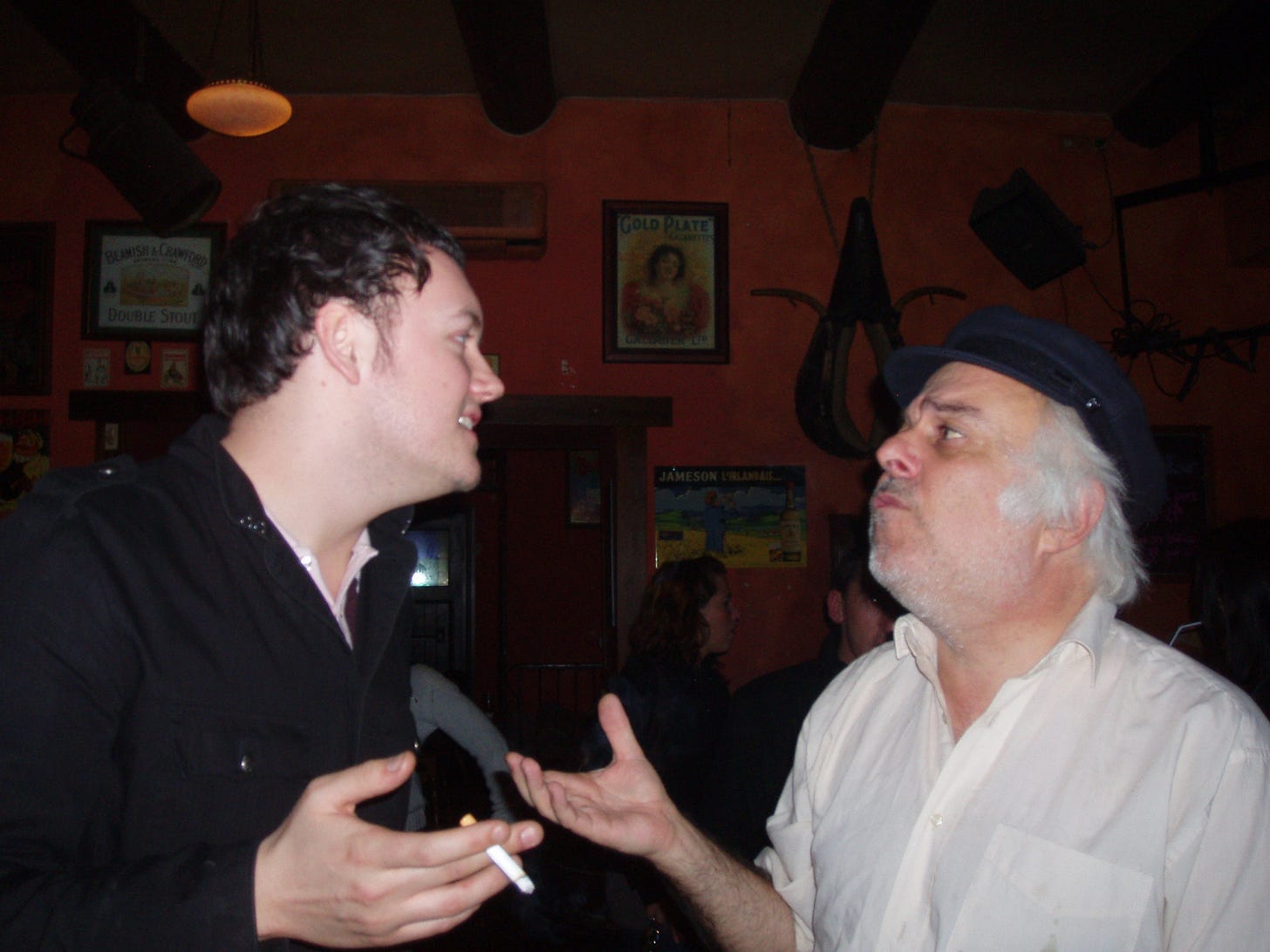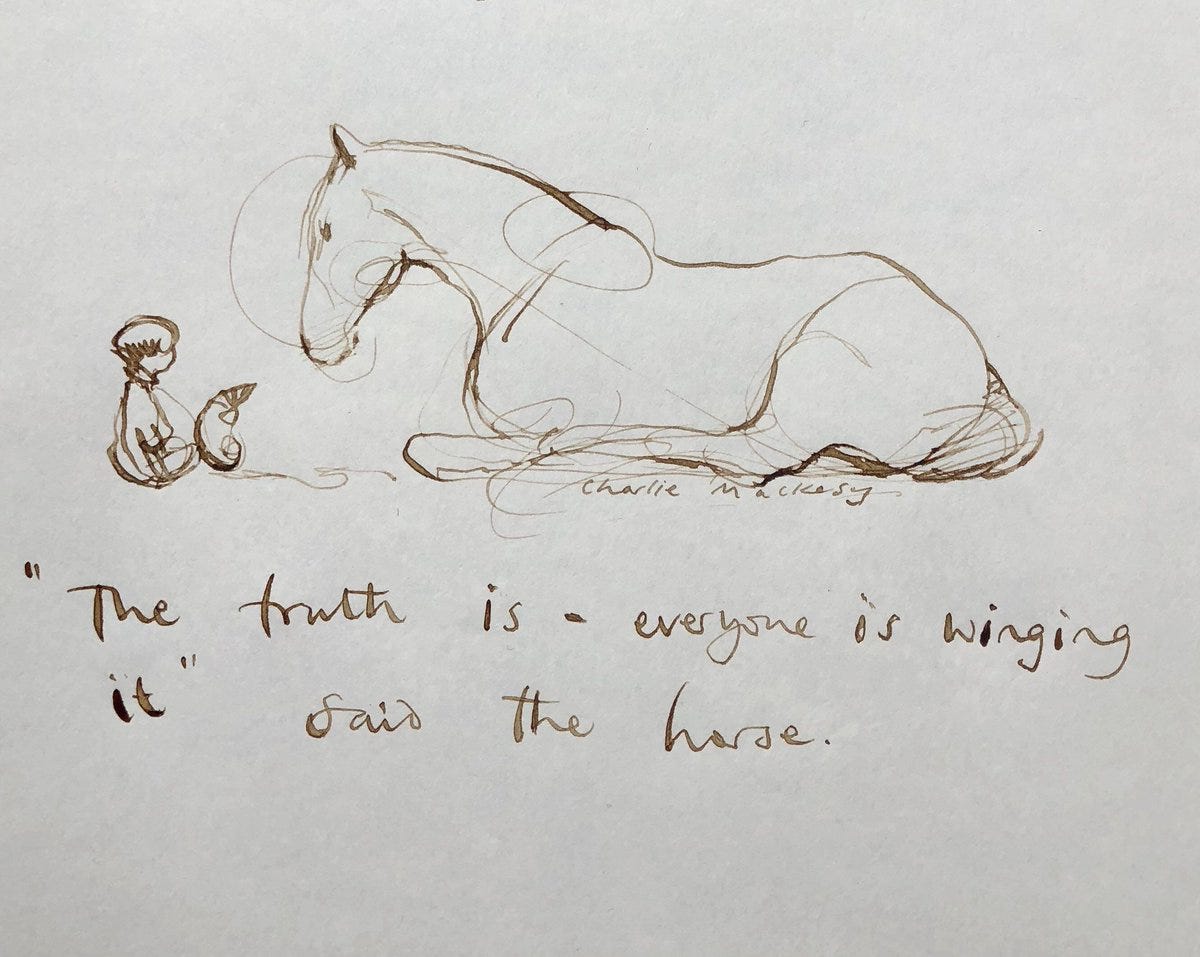40 lessons from 40 years
There’s a saying that ‘you’re everyone you’ve ever met’.
I love that idea, although I did once have a night out with an 80-year-old drunken retired sailor who still lived on his rotting boat in Marseille harbour, so I’m not sure what part of me is him.
However, I do think it’s true that you learn something from every encounter, however brief, and sometimes it’s those small moments that can leave you with the biggest lessons.
So I thought I’d join in the milestone-birthday-list fun and share forty things I’ve learnt from my forty years on the planet:
Have a calm, consistent morning routine. Even if it means getting up before the kids do.
Eat chillis for breakfast. It’s great for kick-starting your metabolism (at least according to my culinary hero, Jamie Oliver)
Whilst we’re at the start of the day, Morning Pages is a great habit to get into
In fact, writing in general is. As E.M. Forster said, ‘How will I know what I think until I see what I say?’
And we might as well cover brushing teeth. When I was 39 a dentist told me about the Roll Brushing technique. Who knew there were so many options? (Oh and don’t use mouthwash. It just washes away all the good stuff in toothpaste.)
Changing gear, if you want to be interesting, be interested. Say ‘What do you think?’ more than ‘Here’s what I think’. If you’re talking more than you’re listening, you’re doing it wrong. People like to be listened to.
Because the only thing that really matters in life is how you make people feel. Everything else is noise.
So remember what it’s like not to know. We all have to learn. The curse of knowledge means we’re often impatient when we should be informing.
And don’t expect you from other people. After all, 50% of people are below average at their jobs.
But do do what you say you’re going to do. That matters.
As does saying congratulations, well done, and thank you. Avoid ‘congrats’ - it suggests you don’t even mean it enough to put the effort in to write the word.
More than anything, remember that context is everything. You have to put yourself in the other person’s shoes, to seek to understand.
That’s true more broadly, too. Someone once said you can only really understand what’s going on in the world from 200 years in the future when you can see all of the moving parts and the long-term impact of decisions. So take the long view and the wide view.
On that note, it’s good to remember that the world breaks, in some way, every few years, whether it’s a war, an economic crash, or an unpredictable pandemic. So build-in resilience and embrace uncertainty.
If you want to build a good career, follow the Alice in Wonderland guide to career planning. You don’t need to worry about the destination, just make sure you’re always on the right path.
And if you’re not sure what path to be on, just try some things and see what bubbles to the top - what you enjoy, what you read, what you watch. You are how you spend your time.
Fill any vacuums of doubt and imagination with fact and reality. Never presume. Go and find out.
After all, time moves more slowly when you have new experiences, as the brain focuses more on processing them.
Then, do the work. Because anything worth doing takes time.
And create more than you consume. It’s so easy to fall into the trap of answering emails and reading articles, then get to the end of the day and feel like you’ve achieved nothing. Write that book, start that business, take that trip.
After all, if not you, then who? If not now, then when?
But also remember advice is what you ask for when you already know the answer, but are too afraid to admit it.
And most importantly, remember that everybody is just winging it
Time for a break - always take food out of the fridge thirty minutes before you’re going to eat it
Don’t lean. And take the stairs whenever you can. Sitting down will be the death of us.
And if you’re putting things on the wall, remember that paper is always smaller than you think it is. Always print a size up.
Right, back to the heavy stuff. Time is finite, but the number of things to fill it is infinite. You’ll never get through it all, the to-do list will never end. So focus time and attention on the people and things that matter most. You have 4000 weeks. Use them wisely.
This means - controversially - that if you’re not enjoying a book by page 100, stop reading it. Two of the best books I’ve ever read got good at page 98, which if anything added to the excitement.
Do the two-minute jobs immediately. Otherwise, they build up and suddenly you’ve got a big lot of small things to do. It’s surprising how much you can do in a minute.
And focus on your to-do list before everyone else’s - and by that, I mean your email inbox. Someone once described an inbox as being everyone else’s priorities, delivered directly to your eyes. Prioritise yourself.
But do start the plates spinning, take the first steps, get things going in the background whilst you work on other things.
And begin with the end in mind. A lot of time is lost moving information around, ordering and re-ordering notes in different formats. Shortcut to the final output as quickly as possible.
Wrapping up, three of the most common diseases in life are seriousness, certainty, and self-importance
So as my 101-year-old Nan said when asked for her advice on a long and happy life, you’ve got to laugh at the world
(She also said to drink Whisky every day)
Practice saying ‘I don’t know’ - and avoid the urge to immediately ask Alexa for the answer. Some of the best pub conversations I’ve ever had are when a group of us sat around trying to work out the answer to a question or remember which actor was in which film. Conversation creates space for serendipity.
And on that note, be there, where you are. Even having a phone in your eyeline will make you less intelligent.
Remember, you don’t have to do any of this.
Oh, and once you start keeping a list, never stop.






41. Never say that Diogo Jota was overpriced and will be a flop